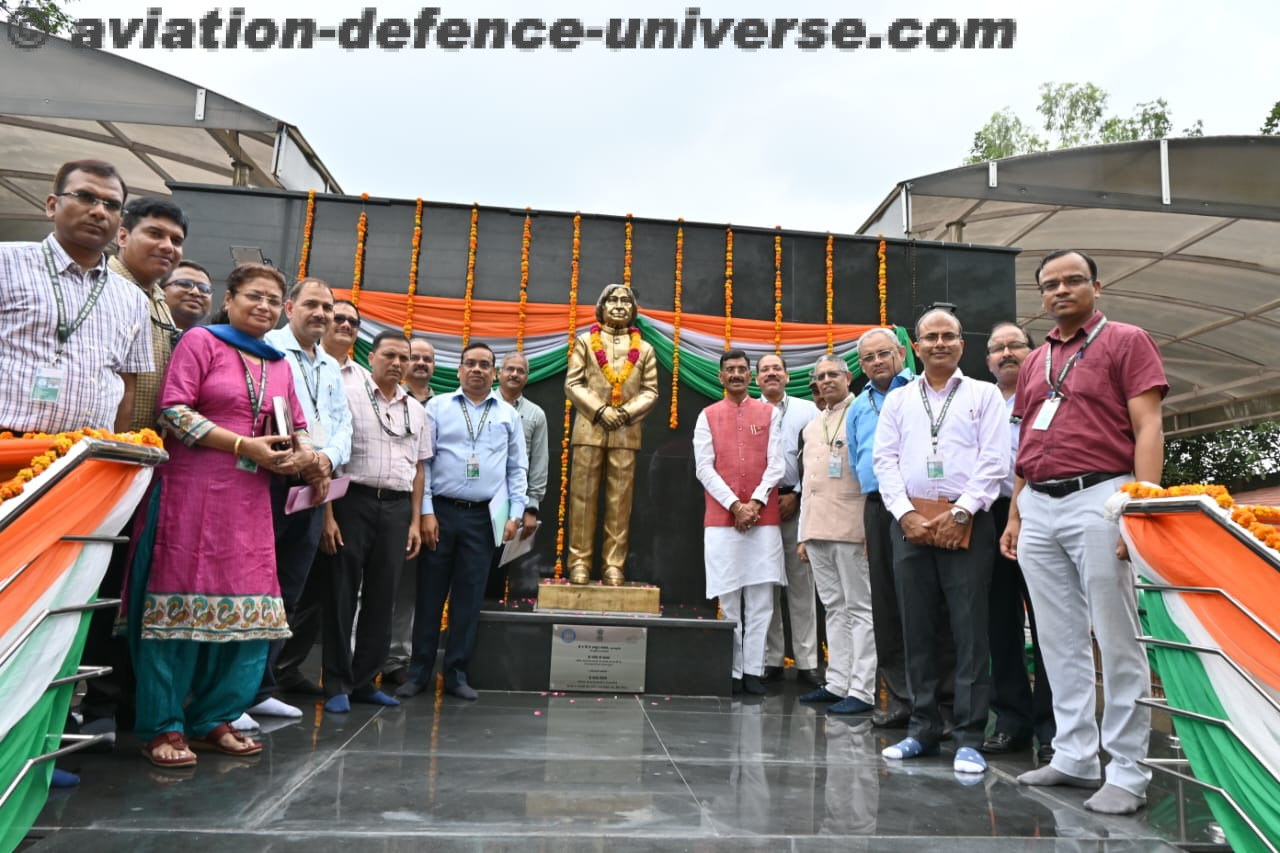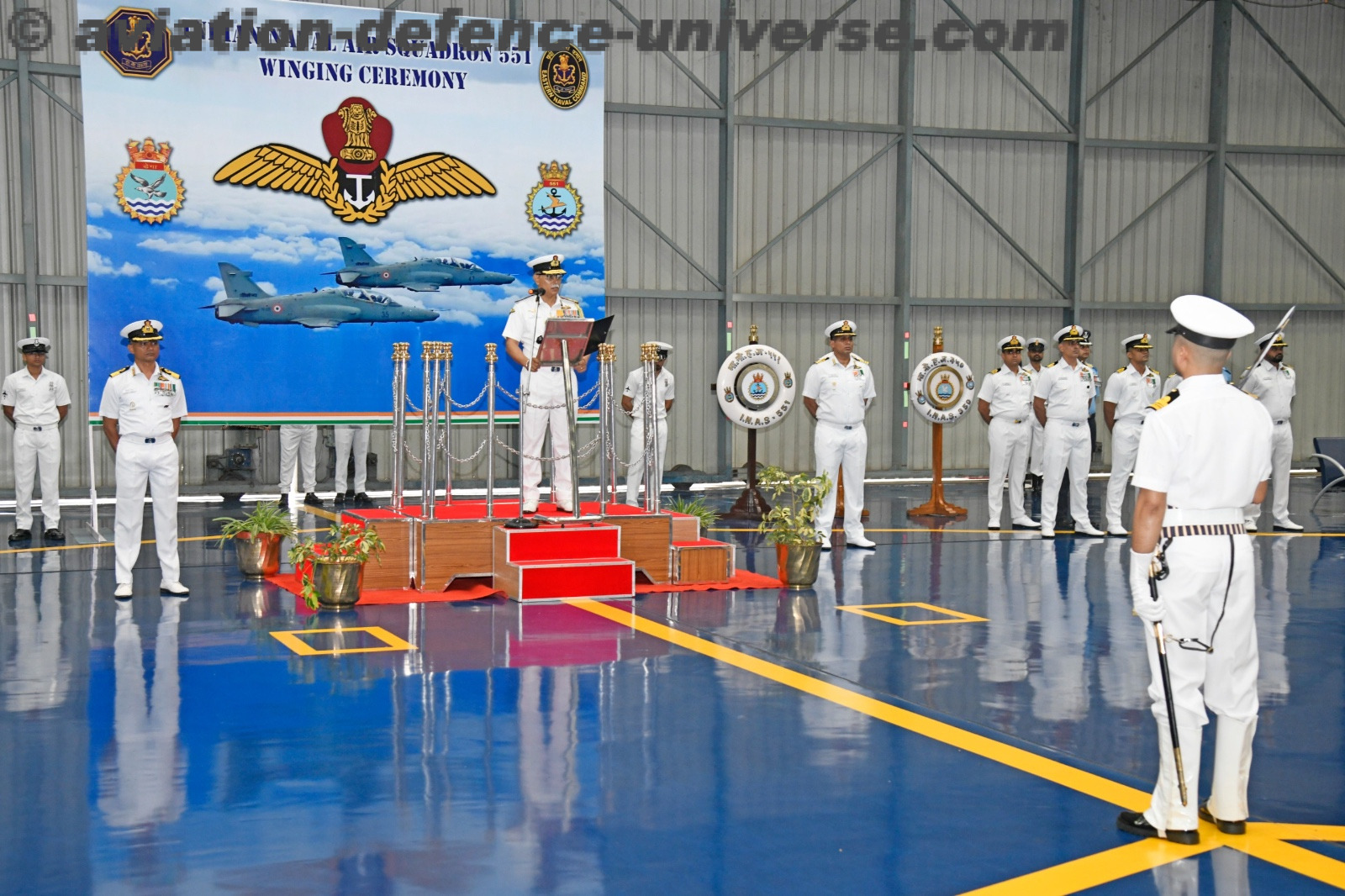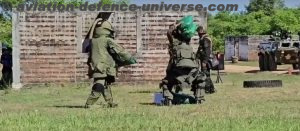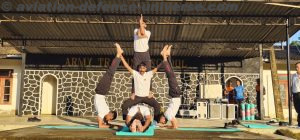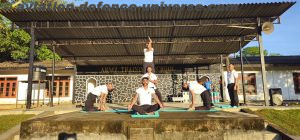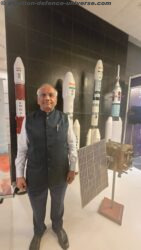- Eyes enhanced MRO Footprint and Skilled Workforce Development
- Unveils expansion Plans and commitment to ‘Make in India’
New Delhi. 26 August 2024. “Our primary mission is to ensure the operational readiness of platforms such as the C-17, P-8, Chinook, and Apache through comprehensive, cost-effective lifecycle solutions. Our integrated logistics support and long-term Performance Based Logistics (PBL) solutions for the P-8I, Apache, and Chinook aim to match the high availability we currently provide to the Indian Air Force’s C-17 fleet through our Globemaster Integrated Support Program (GISP). These PBL solutions, including Next Generation Product Support, are designed to enhance efficiency, minimize downtime, reduce lifecycle costs, and improve operational effectiveness,” stated Nikhil Joshi, Managing Director, Boeing Defence India in an exclusive interview with Aviation & Defence Universe (ADU).
ADU. Could you provide an overview of Boeing Defence India’s (BDI) operations and elaborate on the rationale and strategic goals behind its establishment and ongoing development?
Nikhil Joshi. Boeing Defence India (BDI), established in 2017, was created as part of the regional growth strategy, to be a vital partner for the Indian armed forces. With over eight decades of presence in the Indian market, Boeing continues to remain committed to India, and is focused on developing in-country capabilities through BDI. This effort is aligned with the Make in India initiative by the Government of India and leverages the significant global technical expertise, and product portfolio of the Boeing Company. Our dedication to India is part of a broader strategy that includes establishing similar entities in Australia, the U.K., Japan, and Saudi Arabia to best meet local market and customer needs.
ADU. What are the key pillars of growth for Boeing Defence India?
Nikhil Joshi. The primary pillars of growth for Boeing Defence India are sustenance, maintenance, and training. As we strengthen these areas, we will explore opportunities for co-development, local innovation, and expanding our maintenance, repair, and overhaul (MRO) footprint in India. Significant indigenization efforts are underway for our sustenance programs. We are also developing service engineering capabilities by training program management and field service representatives locally to handle inventories and assets within India.
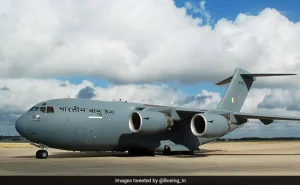 ADU. Are the defense capabilities you’re building in India also expected to benefit the commercial side indirectly?
ADU. Are the defense capabilities you’re building in India also expected to benefit the commercial side indirectly?
Nikhil Joshi. Yes, there are clear synergies between the defense and commercial sectors in the MRO segment. Many components are shared across both domains. For instance, we recently accepted the first overhaul of landing gear from AIESL, which is a model we aim to replicate across other systems and components. By expanding the scope of such Indian MRO organizations by leveraging existing capabilities and developing new capabilities in India, we anticipate benefits for both defence and commercial operations.
ADU. Could you provide an update on the BIRDS program and its role in supporting the growth of the MRO ecosystem in India?
Nikhil Joshi. MRO operations play an important role in ensuring airworthiness and aircraft availability for the commercial and defence aviation sectors. Although at a nascent stage in India, the MRO industry is expected to reach $4 billion by 2033. The Boeing India Repair Development and Sustainment (BIRDS) program, launched in 2021, is an in-country network and alliance of local suppliers that envisions a competitive MRO ecosystem for engineering, maintenance, skilling, repair and sustainment services of defence and commercial aircraft, supporting India’s aspiration to become an MRO hub for the region. Today, Boeing has the most MRO partners in the country working on defence and civil aviation. This network aims to drive high industry benchmarks in India for maintenance and repair, platform availability, customer satisfaction, and quicker turnaround time. An important aspect of the program is training programs to increase skilled manpower by developing sub-tier suppliers and MSMEs to build high-quality MRO capabilities in India. We also plan to explore models successfully implemented by Boeing Defence Australia and Boeing Defence UK, where these entities operate directly within customer facilities to provide dedicated support.
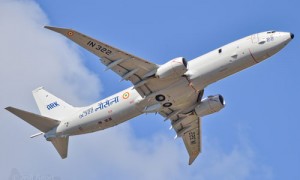 Under the BIRDS initiative, Boeing and Air Works completed full maintenance overhauls on eight P-8I aircraft for the Indian Navy, including three undergoing heavy maintenance simultaneously. Horizon Aerospace partnered with Boeing for MRO services on the P-8I and VIP 737 fleets. AI Engineering Services Limited (AIESL) established a strategic agreement with Boeing for MRO services on Boeing 777 IHoS aircraft and P-8I landing gear overhaul. Boeing has also invested thousands of crores in world-class MRO facilities for India over the past decade, including one at Nagpur handed over to Air India in 2014 and another handed over to the Indian Air Force at Hindon Air Base for the C-17.
Under the BIRDS initiative, Boeing and Air Works completed full maintenance overhauls on eight P-8I aircraft for the Indian Navy, including three undergoing heavy maintenance simultaneously. Horizon Aerospace partnered with Boeing for MRO services on the P-8I and VIP 737 fleets. AI Engineering Services Limited (AIESL) established a strategic agreement with Boeing for MRO services on Boeing 777 IHoS aircraft and P-8I landing gear overhaul. Boeing has also invested thousands of crores in world-class MRO facilities for India over the past decade, including one at Nagpur handed over to Air India in 2014 and another handed over to the Indian Air Force at Hindon Air Base for the C-17.
ADU. How is Boeing planning to address the growing demand for skilled resources in India over the next two decades?
Nikhil Joshi. Boeing’s 2024 Pilot and Technician Outlook anticipates a demand in South Asia for 40,000 pilots, 40,000 maintenance technicians, and 49,000 cabin crew over the next 20 years, driven largely by growth in India. Currently, our sustenance models focus on technical and material support, often leveraging the in-house maintenance technicians that our customers already have. Looking ahead, we see the armed forces as a vital talent pool. Many technicians within the military are already trained by Boeing on our platforms. We also recognize the immense talent potential of the large veteran community, and actively recruit veterans into Boeing’s workforce. This approach is highly effective, as these individuals bring not only bring firsthand experience and a strong commitment to meeting customer needs, having previously been in those roles themselves but qualities of resilience, adaptability, and discipline that are highly valued at Boeing.
ADU. How is India evolving its defence strategy to keep pace with the global technologies and how the 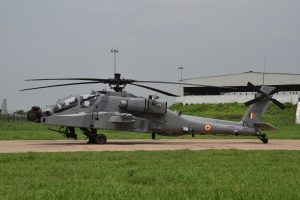 advancements are happening in the western countries? How does BIETC come into picture in this context?
advancements are happening in the western countries? How does BIETC come into picture in this context?
Nikhil Joshi. India has traditionally focused on research and development through government and semi-government entities, particularly in defence and aerospace. However, there is a notable shift towards niche technologies like space, driven by startups supported by government initiatives like iDEX and iCET. This trend is expected to grow, with Indian innovation playing a key role in these areas. Boeing is exploring opportunities to collaborate with both government and startups in these niche technologies, leveraging our expertise to support their development. We believe India has the potential to lead in emerging technologies and that successful innovations here could meet global needs. Boeing India Engineering & Technology Center (BIETC), with more than 5,500-strong workforce, is a cornerstone for partnering with India on next generation products and services for the aerospace and defence industry in India, and the world. These technologists undertake high-quality, advanced aerospace work and offer engineering expertise to Boeing’s defense, space, and commercial businesses, spanning engineering design of structures and systems, manufacturing support, developing systems to test our aircraft, and providing digital solutions to our airline customers. Cutting-edge R&D in traditional and emerging areas is performed at the center, including next-generation airplane health management, environment-friendly coatings, advanced networks and secure communications where teams leverage new-age technologies such as Artificial Intelligence, Machine Learning, Internet-of-Things, Cloud, Model-Based Engineering, and Additive Manufacturing to enhance quality, safety, and productivity.
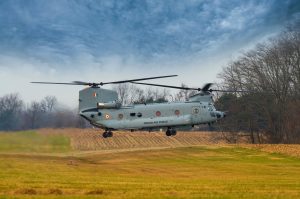 ADU. What are your top priorities for the coming years? Anything that you want to add in terms of how the BDI workforce has grown over the last couple of years?
ADU. What are your top priorities for the coming years? Anything that you want to add in terms of how the BDI workforce has grown over the last couple of years?
Nikhil Joshi. Our top priority this year and next is to continue to build a strong, capable team that excels in managing sustenance programs and ensuring complete customer satisfaction. BDI aims to transition from a supporting role to becoming the primary partner for the Indian defence forces’ sustenance programs. We are focused on enhancing indigenous capabilities and advancing localization in alignment with India’s development goals. Our workforce has grown significantly, with a presence at air force bases nationwide, and we plan to expand supply chain and program management capabilities to support our customers more effectively.













